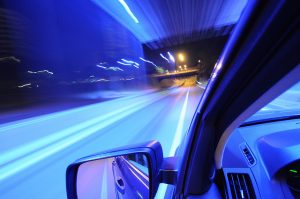Understanding The Impulse To Binge
 The tendency to act impulsively when feeling depressed or distressed is often called a “negative urgency.”
The tendency to act impulsively when feeling depressed or distressed is often called a “negative urgency.”
Depressed individuals with a low degree of negative urgency tend to withdraw and become inactive when symptoms are intense. Depressed individuals with a high degree of negative urgency tend to act impulsively instead. They might drink heavily or eat an entire package of cookies.
Some researchers believe negative urgency is a genetically based impulse that influences behavior—making some people more susceptible to actions such as binge eating, or under-controlled gambling.
Understanding Negative Urgency
A negative urgency arises in response to “negative” emotions such as anger, sadness, anxiety, or depression. Those with high negative urgency try to escape these distressing emotions by engaging in an under-controlled or impulsive activity.
When a person with high negative urgency experiences intolerable emotions, it is as if they are driving down the expressway dangerously fast and the car’s brakes are working poorly or not at all. It will be difficult for the driver to remain on the road since they cannot stop.
Now, imagine this same person is experiencing intense runaway sadness or anxiety. To diminish distress they reach for a bag of chips, or a carton of ice cream to soothe or numb themselves. It will be difficult for them to quit eating after a few chips or spoonfuls since they cannot stop—their internal brakes are weakened or overridden by the emotional and biological impulses at play.
Negative and Positive Urgency
Individuals with high negative urgency are not at increased risk for impulsive behavior when they feel happy or excited. However, individuals with high positive urgency are.
People with high positive urgency will engage in rash behavior when feeling exuberant or exhilarated. Their impulsive actions are intended to keep the positive emotion going, and their internal brakes are weakened or overridden by the emotions and impulses at play.
Positive urgency may lead to under-controlled drinking, gambling, or risky sexual behavior, but has never been linked to eating disorder behavior.
Negative Urgency and Binge Eating
Researcher and professor Kelly Klump of Michigan State University has been researching the connection between depression, negative urgency, and binge eating.
“For the longest time people thought that impulsivity is what was linked to binge eating,” said Klump. “The thinking was that people who binge ate did so simply because they were impulsive. But it’s actually a lot more specific than that. It’s not really people who are impulsive so much as people who become impulsive when they are depressed.”
Klump and her partner Sarah Racine believe that negative urgency may be the primary predictor of whether an individual is prone to binge eating.
Sources: washington post; psychotherapy brownbag
Photo credit: Ernest
 Eating Disorder Self Test. Take the EAT-26 self test to see if you might have eating disorder symptoms that might require professional evaluation. All answers are confidential.
Eating Disorder Self Test. Take the EAT-26 self test to see if you might have eating disorder symptoms that might require professional evaluation. All answers are confidential.